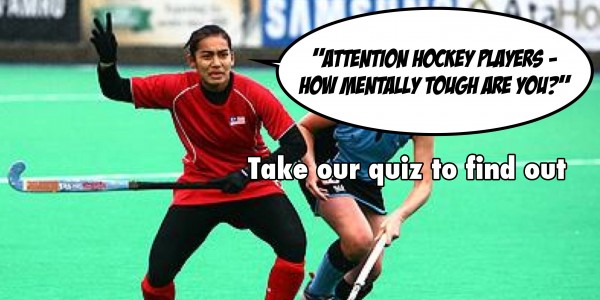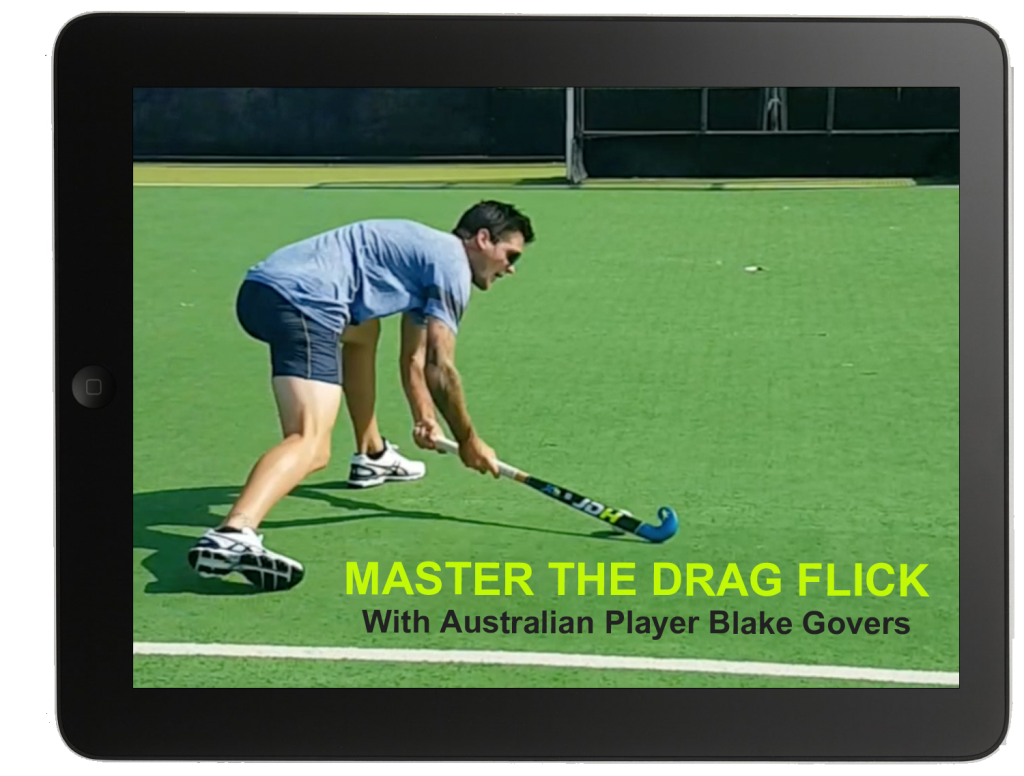Mental Toughness in Hockey
Hockey players and coaches often assess and train physically for hockey, whether that be skills training or fitness assessments. But my question today is:
How many people ever assess and train their mental game?
The answer is less then 5% of people – probably the same 5% that have achieved great things.
Sport is such a great way to teach people some really valuable and important lessons not only in life but also about themselves. But often, a lot of the benefits can get lost through bad coaching, poor communication (either with yourself or from others), overwhelming expectations, some form of mis-interpretation or getting caught up in things you can’t control which results in a lot of young players quitting a sport.
You have probably heard the term ‘mental toughness’ being used across many sports, from youth level and even by commentators on television, particularly in big games or at major tournaments like World Cups, Olympics, etc.
The majority of people will agree that mental toughness in hockey is a HUGE factor (in any sport), but is really essential if you want to go further in hockey, even if it is just to play in a better team or league.
The problem is that very few people actually really understand the mental part of the game and don’t know how to get the most out of themselves (players) or how to teach it (coaches/parents).
Even some qualified professionals teach things in a way that I don’t agree with, which often comes down to the fact that they have not competed at that level themselves so they are just preaching something from a textbook, rather than truly understanding and teaching from experience.
A few examples of mental toughness:
Mental toughness is made up of many different aspects which I explain in great detail in my Master Your Mental Game training, but here are just a few examples of common sayings that you may have heard people use which refers to their mental toughness:
- ‘she lacks confidence’
- ‘look how focussed he is’
- ‘he has a fear of failure’
- ‘she is playing in the zone’
- ‘the pressure got to him in the end’
- ‘her dedication and determination is phenomenal’
- ‘you cannot fault his commitment’
- ‘she makes it look so effortless’
Quiz to assess how mentally tough you are:
Firstly, I encourage you to be honest with yourself and take the time to answer these questions reflectively.
Second, grab a pen and paper and rate each of the following questions below from 1-5 and keep a note of your scores:
- Strongly agree / Always
- Agree / Frequently
- Neutral
- Disagree / Seldomly
- Strongly disagree / Never
Thirdly, let us know your final score by commenting below.
Questions:
- Failures and setbacks cause me to lose confidence or motivation
- My performances vary depending on who we are playing against
- I struggle with motivation to train
- I do additional training on top of team sessions
- I dread getting the ball in big games or when I’m not playing well
- I find it difficult to stay calm under pressure or in big games
- I struggle to do what I do in practice in games
- Getting frustrated sometimes affects my game negatively
- I worry about making mistakes
- I get frustrated when I mess up
- If I start the game badly, it’s hard to turn it around
- I sometimes back away in a fear getting hit
- I often think things like ‘what if I don’t play well?’
- Players or the coach shouting at me knocks me off my game
- I sometimes focus on things I can’t control (i.e. bad umpiring, coaches decision, etc)
- I get frustrated easily and sometimes retaliate to an opposition that pushes me
- I worry about what others think of me (players, coach, selectors)
- I sometimes think that I am not good enough
- I compare myself with others
- I think more about what I did wrong, then what I did right in games
Next, add up your numbers for all the questions to give you a total score out of 100 (calculators are allowed).
Final Score Summary:
Scores Between 20 – 49 – You’ve Got Untapped Potential…
You have a huge opportunity here. One of the biggest barriers that stops people from being a better player is the way that they think (i.e. their mindset). Just because you scored low here, don’t see this as bad news – it just means that you have a greater opportunity than most to grow and develop as a player. The key is to recognise that this is an area that needs your attention and with a bit of work (if you take action), you will feel better about yourself and will probably start to do things that you didn’t realise you were capable of.
Learn more about our Master The Mental Game In Hockey training course.
Scores Between 50- 79 – You’ve Still Got More To Show…
This is where most people are. You probably have a strong drive or motivation to excel and maybe you work harder than most but you are not exactly where you would like to be (results aren’t reflecting your hard work) or you feel like you have got more to show. There may not be anything wrong as such but perhaps there is something that is missing like not being as consistent as you would like to be. Your confidence may come and go and learning how to influence your thinking could help you to get the best out of yourself. Regardless of your skill level, if you don’t work on your mental game, you will probably stay at the same level as the average players and not reach your potential. If you want to get to the next level, you will need to make a few small changes in the way that you think and prepare in order to become a true champion.
Learn more about our Master The Mental Game In Hockey training course.
Scores Between 80 – 100 – You’re On Track, Keep Going…
If you scored high here, then chances are that you have probably had some kind of sport’s mindset training and things are going really well for you. Perhaps you have made a top team, been a team captain or you deliver consistent performances. Remember to keep working on your mental game, continue to get out of your comfort zone to keep learning and growing as a player. As soon as you stop asking questions or stop making mistakes is the moment you stop developing as a player and a person. Perhaps there is another area of your game that needs some work, like your hockey fitness for example.
To learn more about the techniques that I have used to be more confident, deal with frustration and handle pressure, which helped to become an international player you can either:
1. Register for our Mental Toughness For Hockey Players (Online Training) OR
2. For the best and fastest results: Apply for a Free Consultation to discuss how I can help you to maximise your potential and get the most out of your performances:















